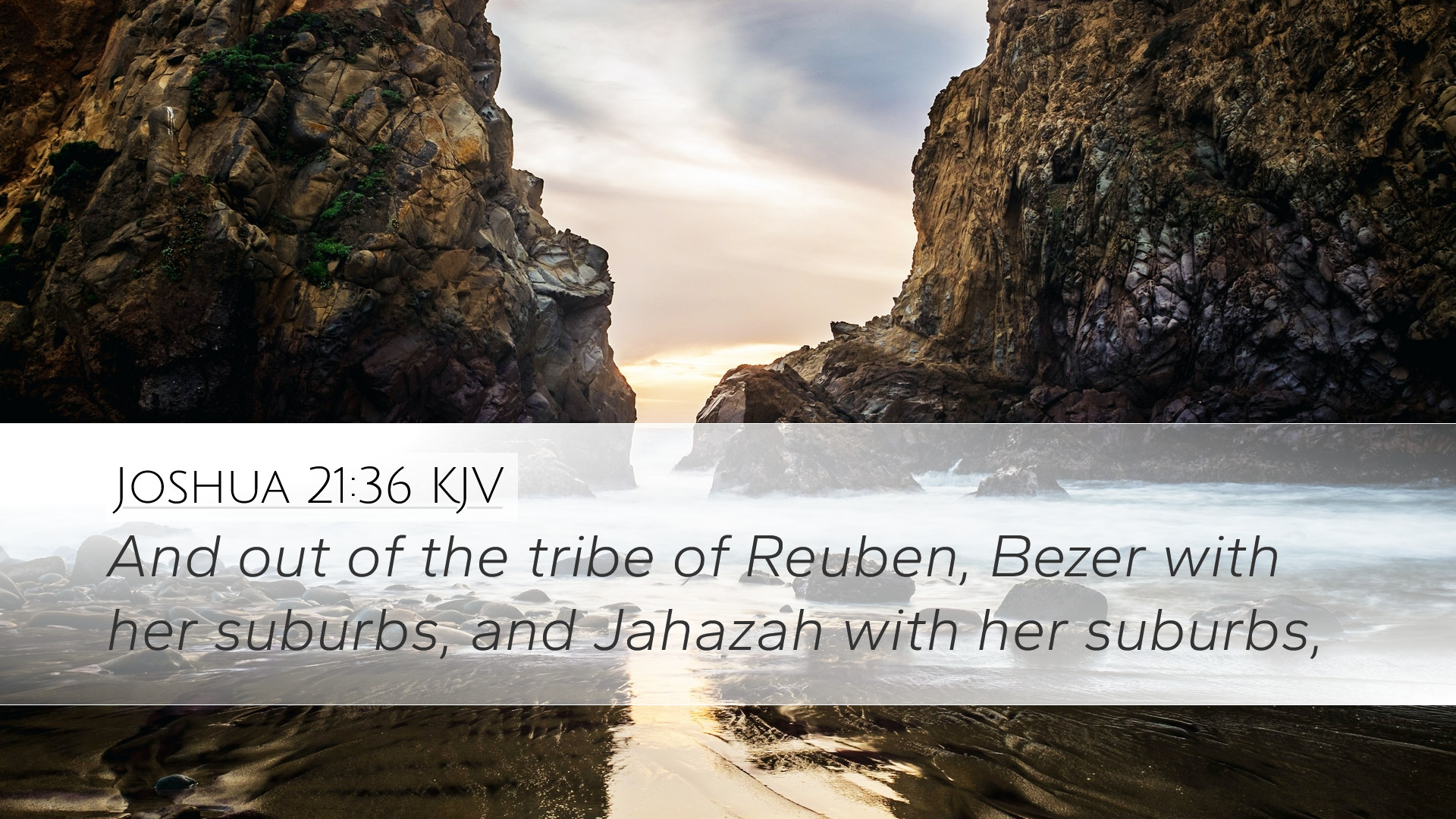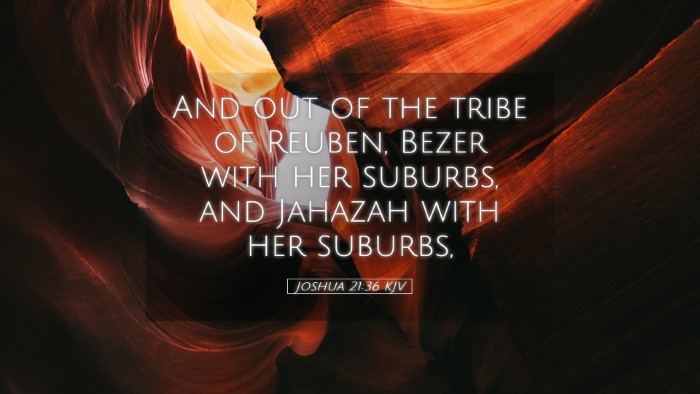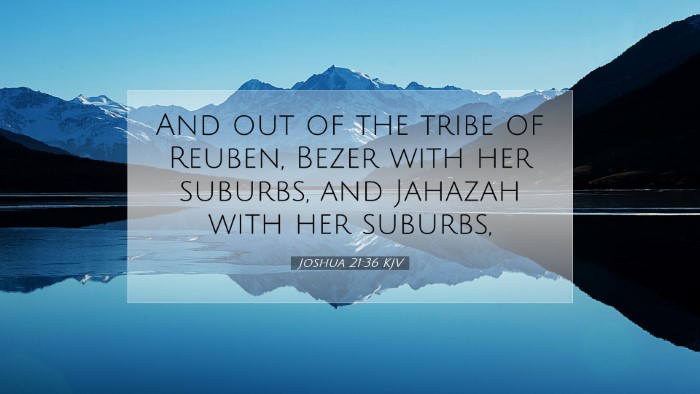Commentary on Joshua 21:36
Text of Joshua 21:36 (ESV): "And out of the tribe of Gad, the cities which were given to the sons of Gad were: Ramoth in Gilead, the city of refuge, and Mahanaim."
Introduction
The verse Joshua 21:36 is pivotal in understanding the distribution of land among the tribes of Israel, particularly focusing on the tribe of Gad. This commentary compiles insights from respected public domain sources to provide a multi-faceted examination of the text.
Contextual Background
Joshua 21 addresses the allocation of cities to the Levites, the priestly tribe of Israel, as part of the establishment of the Promised Land. The cities mentioned in this chapter are significant not merely as geographical locations but as vital aspects of Israel’s social and religious life.
Historical Setting
Following the conquest of Canaan, the Israelite tribes, under the leadership of Joshua, begin to settle in their allotted lands. The Levites, however, were not given a distinct territorial inheritance but were provided with cities scattered throughout the other tribes' territories.
The Significance of Ramoth and Mahanaim
- Ramoth in Gilead: One of the cities of refuge, Ramoth played a crucial role in the ancient judicial system, providing asylum to individuals who had committed unintentional manslaughter.
- Mahanaim: This city served as a significant military and administrative center during King David's reign, indicating its long-lasting importance in Israel’s history.
Insights from Commentaries
Matthew Henry's Commentary
Henry highlights the grace of God in providing for the Levites among the other tribes. He notes that their inclusion in the cities of refuge signifies the mercy of God toward those who seek refuge from sin and judgment. The choice of these cities underscores the Levites’ role as mediators between God and His people.
Albert Barnes' Notes
Barnes emphasizes that Ramoth being a city of refuge indicates God’s provision of protection and the importance of justice in society. He suggests that capable leaders arise from such cities, reflecting on how these locations foster communal relationships and serve as a refuge from injustice.
Adam Clarke's Commentary
Clarke elaborates on the geographic and strategic importance of the cities allotted to Gad, particularly Ramoth and Mahanaim. He underscores that these cities were essential for military strategy during conflicts and possessed compelling historical narratives that showcase their significance in later events, like the anointing of David.
Theological Implications
This verse invites deeper theological reflection on God's providence in establishing order and safety within the community. The provision of cities of refuge highlights God's justice and mercy, suggesting a broader theological narrative of redemption and grace.
Refuge and Redemption
In a spiritual sense, the cities of refuge can symbolize the ultimate refuge found in Christ. Just as Ramoth provided a physical sanctuary for those in need, Christ serves as the spiritual sanctuary for believers, offering redemption from guilt and sin.
The Role of Leadership
The mention of the tribe of Gad reminds modern believers of the importance of godly leaders in the community. The Levites, as priests and spiritual leaders, played a key role in guiding God’s people towards righteousness, a principle applicable in contemporary church leadership.
Conclusion
Joshua 21:36 serves as more than just a historical record; it encapsulates profound theological truths about God’s provision, justice, and the necessity of refuge in the life of believers. By reflecting on the insights from Matthew Henry, Albert Barnes, and Adam Clarke, pastors, students, and theologians can glean rich understandings that enhance their study and teaching of Scripture.


